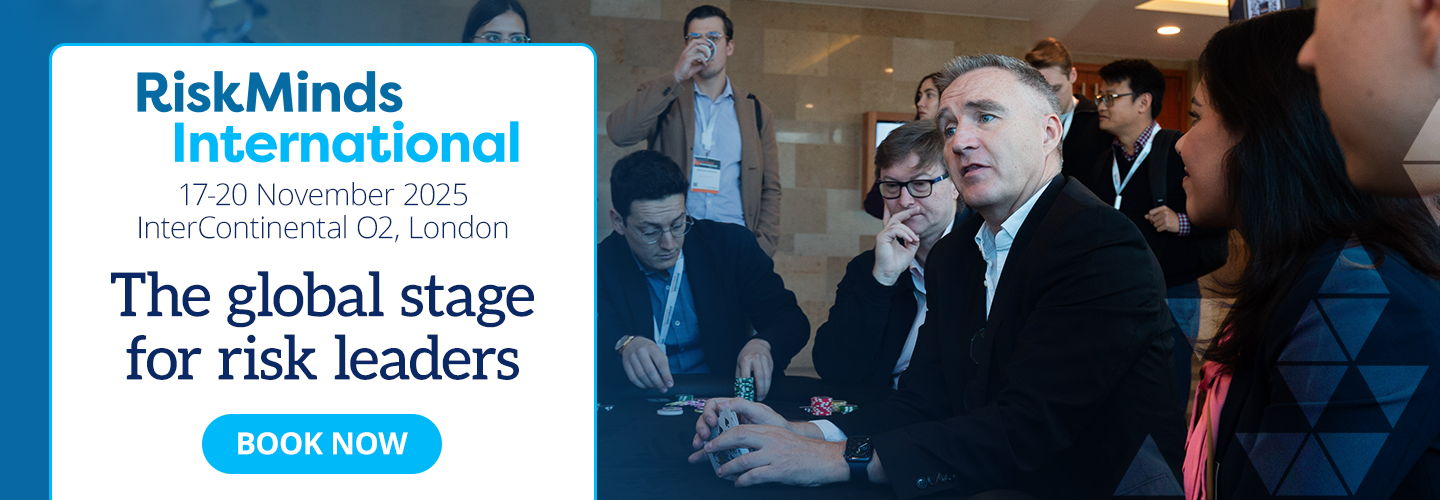What can poker teach you about risk and decision making?

In the world of financial services, decision-making is an art that balances risk and reward, much like the strategy employed by professional poker players. Demonstrating this connection live at RiskMinds International in November, Caspar Berry, a former professional poker player, shares his unique perspective on how poker can enhance our understanding of risk and improve decision-making skills across various domains.
The poker player’s perspective on risk
Caspar’s unique stance on risk comes from his background as a professional poker player. "Poker inculcates a very pro-risk mindset for a very simple reason, which is that if you're not prepared to take risks playing poker, you cannot make money." This concept parallels investment, where resources are allocated under uncertainty to generate returns. Unlike money left languishing under a mattress, which generates no returns, poker demands active engagement with risk to reap rewards.
The poker table provides a powerful backdrop to understanding risk. As Caspar highlights, poker players approach decisions with deep mathematical analysis and statistical evaluation. This calculated approach fosters a risk-tolerant outlook transferable to other life areas, such as financial, reputational, and physical risks.
Understanding black swan events
The modern lexicon surrounding risk is richly enhanced by the concept of black swan events. Introduced in 2007 by Nassim Nicholas Taleb, these are unforeseen incidents outside typical expectations that bear significant impact. "In my life, I was probably quite oblivious to the concept," admits Caspar. Taleb's book was transformative, prompting many to reevaluate the assumptions underpinning their approaches to risk management.
From the world of gambling, Caspar shares a compelling anecdote illustrating black swan events: the unexpected attack by a tiger on stage performers at a Mirage Hotel Casino. This incident led to a dramatic business impact, exemplifying how unforeseen factors can drastically alter outcomes. Similarly, the abrupt closure of major online poker sites in 2011 due to breaches in trust serves as a reminder of vulnerabilities lying beyond calculated probabilities.
Risk versus uncertainty
Caspar's insights emphasise a critical distinction: "There isn't something called risk and then uncertainty." He argues all situations are inherently uncertain due to countless variables that can disrupt any calculated model. This understanding reshapes our perception of decision-making, highlighting the need to account for both expected and unexpected factors.
For poker and investments alike, it's not merely about calculating probabilities but preparing for the unpredictable. By accepting this framework, decision-makers can more effectively manage their resource allocation strategies.
Proactive decision-making: Fold and move on
Poker demands constant action; inaction is not an option, echoing the importance of timely decisions in life. Caspar demonstrates, "One of the great disciplines with poker is that you have to make a decision every 90 seconds. You can't abdicate, procrastinate, or delegate."
Yet, the art of decision-making in poker is best captured in the fold – the conscious decision to exit a hand. "The fold is not inaction; it's a proactive move," Caspar explains. Folding isn't glamorous (and won't feature as the climax in a James Bond film), but it distinguishes good players from the greats. It’s the strategic withdrawal that preserves resources for opportunities promising higher returns.
Lessons for broader resource allocation
One profound takeaway from poker is the discipline of resource allocation. Caspar suggests that to invest in high-return areas, it's essential to halt lesser ventures – even those that yield moderate success. "Part of the skill of resource allocation is being prepared to proactively, aggressively stop doing... the things that are working okay, but they might be higher return elsewhere."
This insight is broadly applicable across business and personal finance. Being willing to let go of safe but mediocre endeavours could free up valuable resources for more lucrative prospects.
Conclusion
Caspar Berry's reflections offer us crystallised insights into understanding and managing risk through the lens of poker – a game where strategic risk-taking and rapid decision-making are vital for success. By adopting these principles, investors and decision-makers alike can enhance their approach, creating dynamic, resilient strategies that embrace uncertainty.
As you ponder your next big decision, remember the poker table’s lessons: evaluate risks with deep analysis, prepare for the unknown, and never underestimate the power of a well-timed fold.
